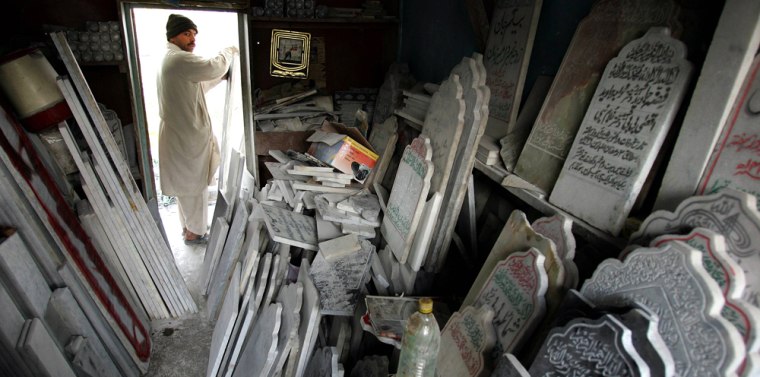More than 700 people — many suffering from pneumonia and hypothermia — were treated at hospitals Wednesday as winter descends on Pakistani Kashmir and the millions who lost their homes in last month’s earthquake.
Media reports said eight people have died in northwestern Pakistan and Kashmir due to the bad weather, and doctors said the situation could worsen in the coming weeks if arrangements are not quickly made to provide winterized shelters to quake survivors.
Rain and snow began lashing Pakistan’s part of Kashmir late Saturday, blocking several roads and grounding helicopters used to ferry aid to remote areas. Since the quake struck on Oct. 8, killing more than 87,000 people, aid agencies have been warning of another disaster among the survivors, who have been living in tents in the Himalayan highlands.
“We received about 200 patients with cold-related diseases in the past 12 hours,” said Bashir Rahman, a doctor at the main hospital in Muzaffarabad. Health officials said the number of people being treated at hospitals for hypothermia, pneumonia and other respiratory problems had surpassed 700.
“Most people were taken to hospitals Tuesday night, and patients are still pouring in,” Rahman said.
The U.N. Office for the Coordination of Humanitarian Affairs in Pakistan has said the onset of winter conditions is severely hampering relief operations.
“This development shows why it is very important for us to do more — and quickly, too — as we keep the focus on the relief phase,” U.N. Emergency Operations Chief Andrew MacLoed said in a statement.
He also appealed for more relief funds.
Donors have pledged more than $6 billion, but much of it is meant for reconstruction. MacLoed said less than half of the $550 million appeal for relief funds has been received.
In the coming weeks, he said, NATO plans to start using helicopters that have been hauling aid to the quake zone to carry shelter materials into the high mountains “before the winter really bites” and take medical teams to inaccessible areas.
